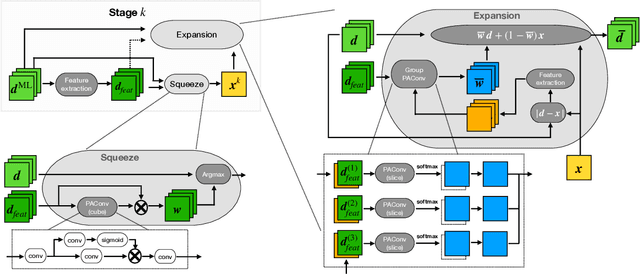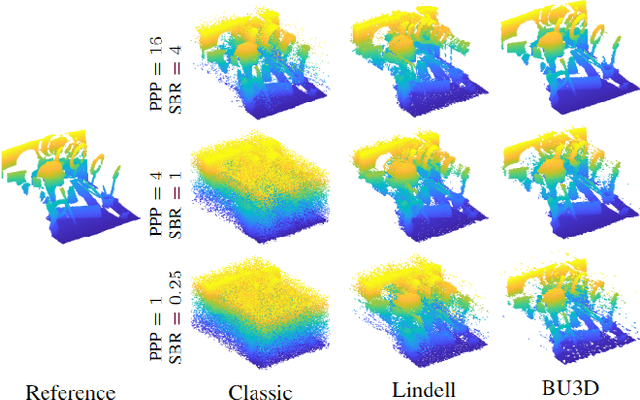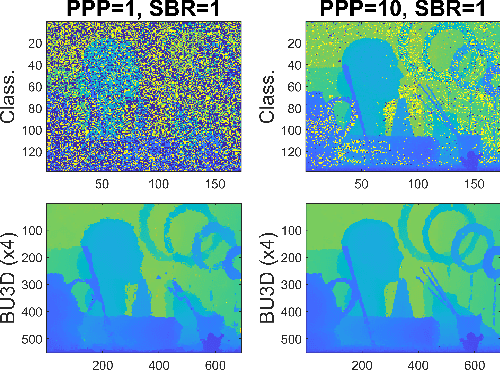Bayesian Based Unrolling for Reconstruction and Super-resolution of Single-Photon Lidar Systems
Paper and Code
Jul 24, 2023


Deploying 3D single-photon Lidar imaging in real world applications faces several challenges due to imaging in high noise environments and with sensors having limited resolution. This paper presents a deep learning algorithm based on unrolling a Bayesian model for the reconstruction and super-resolution of 3D single-photon Lidar. The resulting algorithm benefits from the advantages of both statistical and learning based frameworks, providing best estimates with improved network interpretability. Compared to existing learning-based solutions, the proposed architecture requires a reduced number of trainable parameters, is more robust to noise and mismodelling of the system impulse response function, and provides richer information about the estimates including uncertainty measures. Results on synthetic and real data show competitive results regarding the quality of the inference and computational complexity when compared to state-of-the-art algorithms. This short paper is based on contributions published in [1] and [2].
 Add to Chrome
Add to Chrome Add to Firefox
Add to Firefox Add to Edge
Add to Edge